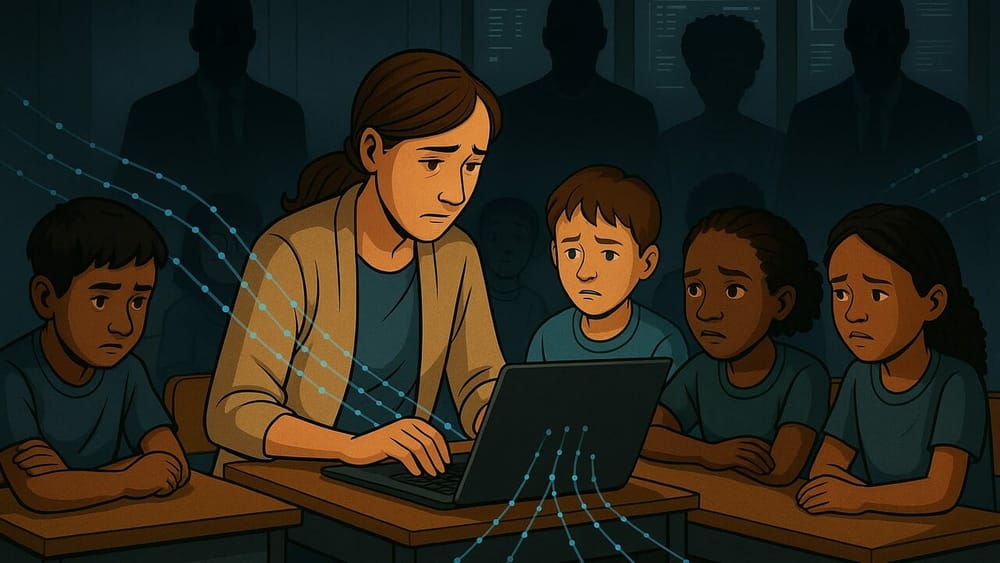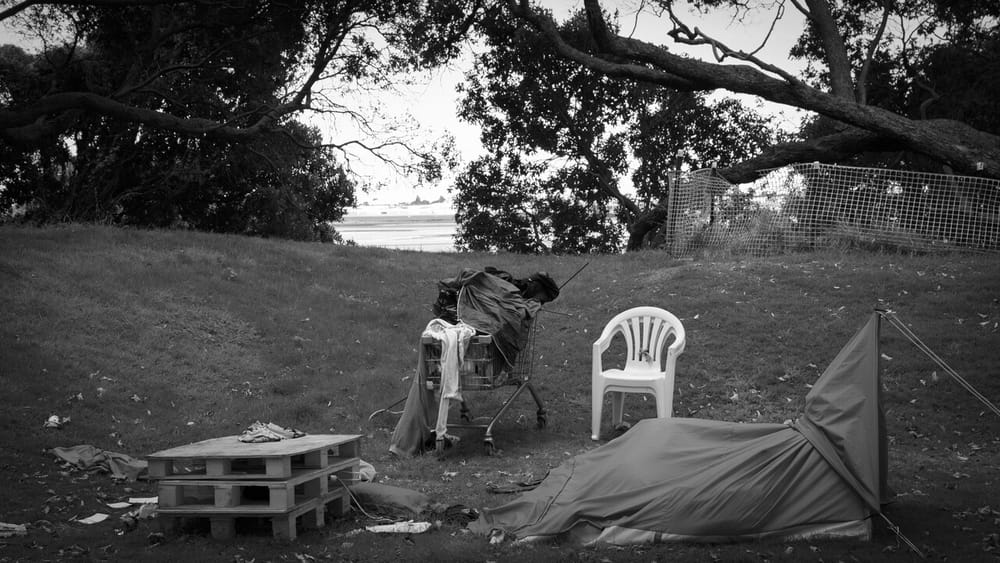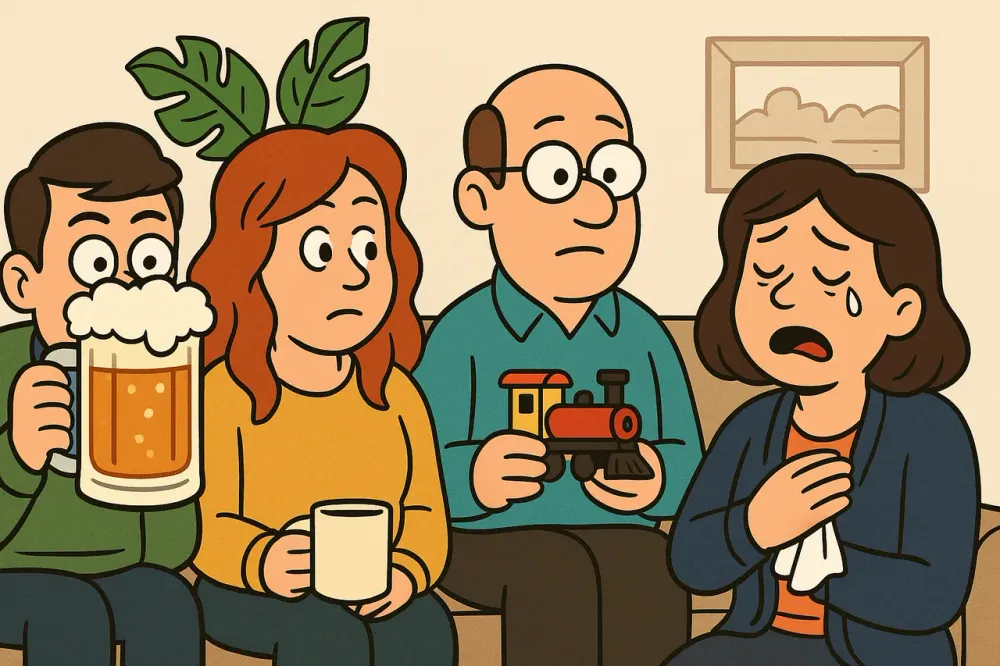
There are many threads that make up my identity. I am proud to tell anyone that I am Canadian, Jewish, a daughter, wife, sister and friend; and that I was a lawyer in Canada and a development worker in Asia. There is one part of me, one thread that I hesitate to share: I have bipolar disorder, which is commonly known as manic depression.
I remember vividly the cold, snowy afternoon when I was diagnosed. Except for the falling snowflakes I could see out the window, it felt like I and the world both froze as I received my diagnosis. For weeks after I felt panicked, believing that strangers passing me somehow knew I no longer fit in the world the same way. The words “I am bipolar” reverberated in my mind.
Luckily, shortly after my diagnosis, I spoke with a wonderful psychologist. In just one conversation they transformed my perspective, explaining in a way that deeply resonated that I have bipolar disorder rather than being bipolar. I no longer felt that bipolar disorder defined who I was.
It may seem semantic, but this realisation was liberating and changed the way I viewed myself. Over time, I developed the confidence to share my diagnosis more easily and with more people. I had feared that people would look at me differently, trust me less, condescend, pity—but I never felt that. I began to shed the remaining self-stigma I struggled with, and I relaxed my fear of social stigma.
Work, however, was different. I was a lawyer (I retired recently). Coincidentally, years before I was diagnosed, I had joined a law firm specialising in mental health law. From the beginning, I knew there was something amiss. I noticed anxiety that was like a mosquito constantly buzzing around me, nipping at me day and night. It’s hard to believe in retrospect because I was practising mental health law, but I was oblivious that my own emerging illness was anything more than a bad case of stress.
As time went on, I found that my interest in socialising periodically hibernated. When I was at home, I mostly slept. I felt hopeless about everything. I had disturbing thoughts of suicide that seemed to come unbidden. It was clear that these were episodes of depression. I didn’t tell anyone. I was ashamed of being so powerless. I marshalled the energy I had to maintain a façade of wellness at work. Work was my tether. It provided structure and hours during which I had to at least pretend to be ok. And I was performing well at work.
When an episode of depression lifted, it felt like clouds parting and I had myself back. That is, until I noticed that during some of the interceding periods I needed little sleep—very little, too little. During these periods, I had energy to spare and all I wanted to do was socialise. When I did, I was the life of the party. I didn’t realise that these were hypomanic episodes associated with bipolar disorder. But it didn’t take long for me to realise that my hypomanic behaviour—who I was hanging out with and my behaviour—was not reflective of who I am. It wasn’t like me, and the behaviour started to scare me just as much as the suicidal ideation.
With her impeccable spidey-senses, my mother confronted me, no longer accepting my false reassurances about being fine. Speaking candidly with her lifted some of the crushing weight I was feeling. I didn’t feel alone. Finally, with her encouragement, I sought professional help. Asking for and accepting help changed the trajectory of my life. I’m convinced that it saved my life.
Coming to terms with bipolar disorder
I called a psychiatrist I knew from my law practice. It was not fun being on the service-receiving side rather than the service-provision side. I remember like it was yesterday meeting with the psychiatrist and hearing my diagnosis. It felt like a punch in the gut. I had no idea then that many people quietly cope with mental illness, living and working under the radar.
As a lawyer, I was used to solving other people’s problems for a living. This made it feel impossible to admit to anyone that I had a problem with such a stinging stigma. I thought it called into question my ability to work and even to think and act rationally. I was afraid my diagnosis would be confused with my ability to perform at work.
As I’ve already described, during the following months and years, I did share my diagnosis with trusted friends and family. And as my confidence grew, I became very open about the diagnosis and about being on medication—even sharing with acquaintances if appropriate.
I have always had close friends among my peers at work. In every workplace in Canada and Asia, I confided in at least one work friend. I never felt that my ability to get the job done was doubted as a result of my disclosures. Their acceptance was critical in largely getting over my fear of stigma at work.
Yet I’ve only told two bosses over the 25 years since my diagnosis. They were terrific! But eventually I realised that since I needed no accommodation, I should feel no obligation to share my diagnosis with a boss. And while I have not had a single regret about being so open socially and with peers about my diagnosis and medication, I wish I had been more comfortable from the start about my choice to keep my health issue more selectively private in the workplace.
I wish also that I had known at the beginning that I wasn’t alone—that there are plenty of lawyers with a mental illness who successfully manage work. A Johns Hopkins study of 104 occupations found that lawyers are the most likely to have depression. Another study found that a whopping 19 percent of American lawyers reported symptoms of depression. I wish I had known about the Canadian Law Society’s confidential, free program to assist lawyers facing mental health issues.
Many other professional or employee institutions may have similar assistance. Please, don’t be ashamed to ask for help that can change your life.







